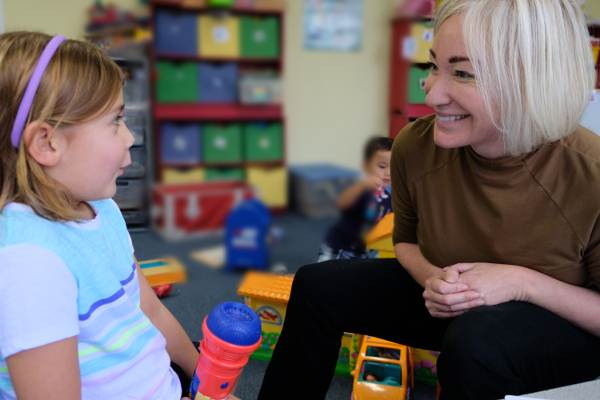Speech Disorders
Does your child have a hard time being understood? Does your child avoid speaking because they are aware they’re difficult to understand?
Articulation Disorder
Children with articulation disorders have trouble making speech sounds. Articulation disorders result in reduced speech intelligibility and, depending on the child, may lead to avoidance of social interactions and affect self esteem. Treatment focuses on multi-sensory approaches (visual, auditory, tactile) to systematically train a child to produce sounds correctly. Weekly homework is provided to improve speech intelligibility which will result in more successful interactions.
Phonological Disorder
Children with a phonological disorder have trouble learning the speech sound system. Unlike an articulation disorder, they may not have problems with motor production of sounds. Learning a phonological system involves the ability to organize, identify and manipulate speech sound patterns and then produce them.
A phonological disorder may affect a child’s speech intelligibility. Children with a phonological disorder may avoid conversation, become withdrawn and show decreased self confidence leading to social-emotional problems. Phonological disorders are also correlated with reading disabilities. Treatment involves consistent practice. Our families are provided with weekly homework to ensure the carryover of skills as their children improve their phonological skills, become more confident and successful.
Childhood Apraxia of Speech
Childhood Apraxia of Speech (CAS) is a speech sound disorder, where a child has difficulty saying what they want to say.
In CAS, the brain struggles to develop plans for speech movements. With this disorder, the speech muscles aren’t weak, but they don’t perform normally because the brain has difficulty directing or coordinating the movements to produce speech. Symptoms of CAS may include:
- Difficulty moving smoothly from one sound, syllable or word to another
- Groping movements with the jaw, lips or tongue to make the correct movement for speech sounds
- Vowel distortions
- Using the wrong stress in a word
- Inconsistent sound errors when trying to repeat words
- Difficulty imitating sounds and words
- Associated with phonological impairments and language delays
Therapeutic interventions include motor programming and linguistic approaches. Using fun and motivating activities our goal is to improve your child’s intelligibility of speech so that he/she can share their thoughts and feeling clearly and confidently!
*Please do not include confidential information in your message. One of our professionals will respond within 48 hours.

